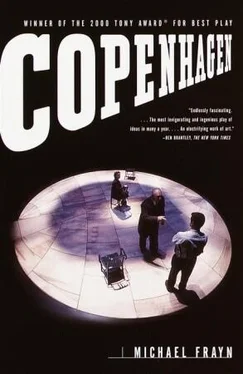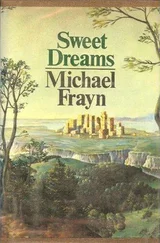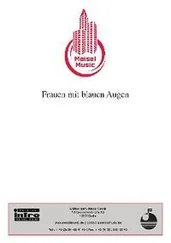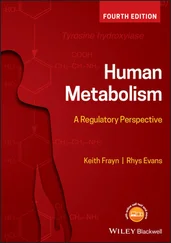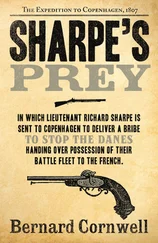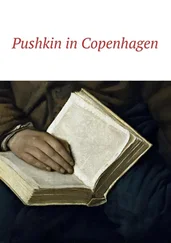Heisenberg But about some things even they never speak.
Bohr About some things even we only think.
Margrethe Because there’s nothing to be said.
Bohr Well … perhaps we should be warm enough. You suggested a stroll.
Heisenberg In fact the weather is remarkably warm.
Bohr We shan’t be long.
Heisenberg A week at most.
Bohr What — our great hike through Zealand?
Heisenberg We went to Elsinore. I often think about what you said there.
Bohr You don’t mind, my love? Half-an-hour?
Heisenberg An hour, perhaps. No, the whole appearance of Elsinore, you said, was changed by our knowing that Hamlet had lived there. Every dark corner there reminds us of the darkness inside the human soul …
Margrethe So, they’re walking again. He’s done it. And if they’re walking they’re talking. Talking in a rather different way, no doubt — I’ve typed out so much in my time about how differently particles behave when they’re unobserved … I knew Niels would never hold out if they could just get through the first few minutes. If only out of curiosity.… Now they’re started an hour will mean two, of course, perhaps three.… The first thing they ever did was to go for a walk together. At Göttingen, after that lecture. Niels immediately went to look for the presumptuous young man who’d queried his mathematics, and swept him off for a tramp in the country. Walk — talk — make his acquaintance. And when Heisenberg arrived here to work for him, off they go again, on their great tour of Zealand. A lot of this century’s physics they did in the open air. Strolling around the forest paths at Tisvilde. Going down to the beach with the children. Heisenberg holding Christian’s hand. Yes, and every evening in Copenhagen, after dinner, they’d walk round Faelled Park behind the Institute, or out along Langelinie into the harbour. Walk, and talk. Long, long before walls had ears … But this time, in 1941, their walk takes a different course. Ten minutes after they set out … they’re back! I’ve scarcely had the table cleared when there’s Niels in the doorway. I see at once how upset he is — he can’t look me in the eye.
Bohr Heisenberg wants to say goodbye. He’s leaving.
Margrethe He won’t look at me, either.
Heisenberg Thank you. A delightful evening. Almost like old times. So kind of you.
Margrethe You’ll have some coffee? A glass of something?
Heisenberg I have to get back and prepare for my lecture.
Margrethe But you’ll come and see us again before you leave?
Bohr He has a great deal to do.
Margrethe It’s like the worst moments of 1927 all over again, when Niels came back from Norway and first read Heisenberg’s uncertainty paper. Something they both seemed to have forgotten about earlier in the evening, though I hadn’t. Perhaps they’ve both suddenly remembered that time. Only from the look on their faces something even worse has happened.
Heisenberg Forgive me if I’ve done or said anything that …
Bohr Yes, yes.
Heisenberg It meant a great deal to me, being here with you both again. More perhaps than you realise.
Margrethe It was a pleasure for us. Our love to Elisabeth.
Bohr Of course.
Margrethe And the children.
Heisenberg Perhaps, when this war is over.… If we’re all spared.… Goodbye.
Margrethe Politics?
Bohr Physics. He’s not right, though. How can he be right? John Wheeler and I …
Margrethe A breath of air as we talk, why not?
Bohr A breath of air?
Margrethe A turn around the garden. Healthier than staying indoors, perhaps.
Bohr Oh. Yes.
Margrethe For everyone concerned.
Bohr Yes. Thank you.… How can he possibly be right? Wheeler and I went through the whole thing in 1939.
Margrethe What did he say?
Bohr Nothing. I don’t know. I was too angry to take it in.
Margrethe Something about fission?
Bohr What happens in fission? You fire a neutron at a uranium nucleus, it splits, and it releases energy.
Margrethe A huge amount of energy. Yes?
Bohr About enough to move a speck of dust. But it also releases two or three more neutrons. Each of which has the chance of splitting another nucleus.
Margrethe So then those two or three split nuclei each release energy in their turn?
Bohr And two or three more neutrons.
Heisenberg You start a trickle of snow sliding as you ski. The trickle becomes a snowball …
Bohr An ever-widening chain of split nuclei forks through the uranium, doubling and quadrupling in millionths of a second from one generation to the next. First two splits, let’s say for simplicity. Then two squared, two cubed, two to the fourth, two to the fifth, two to the sixth …
Heisenberg The thunder of the gathering avalanche echoes from all the surrounding mountains …
Bohr Until eventually, after, let’s say, eighty generations, 2 80specks of dust have been moved. 2 80is a number with 24 noughts. Enough specks of dust to constitute a city, and all who live in it.
Heisenberg But there is a catch.
Bohr There is a catch, thank God. Natural uranium consists of two different isotopes, U-238 and U-235. Less than one per cent of it is U-235, and this tiny fraction is the only part of it that’s fissionable by fast neutrons.
Heisenberg This was Bohr’s great insight. Another of his amazing intuitions. It came to him when he was at Princeton in 1939, walking across the campus with Wheeler. A characteristic Bohr moment — I wish I’d been there to enjoy it. Five minutes deep silence as they walked, then: ‘Now hear this — I have understood everything.’
Bohr In fact it’s a double catch. 238 is not only impossible to fission by fast neutrons — it also absorbs them. So, very soon after the chain reaction starts, there aren’t enough fast neutrons left to fission the 235.
Heisenberg And the chain stops.
Bohr Now, you can fission the 235 with slow neutrons as well. But then the chain reaction occurs more slowly than the uranium blows itself apart.
Heisenberg So again the chain stops.
Bohr What all this means is that an explosive chain reaction will never occur in natural uranium. To make an explosion you will have to separate out pure 235. And to make the chain long enough for a large explosion …
Heisenberg Eighty generations, let’s say …
Bohr… you would need many tons of it. And it’s extremely difficult to separate.
Heisenberg Tantalisingly difficult.
Bohr Mercifully difficult. The best estimates, when I was in America in 1939, were that to produce even one gram of U-235 would take 26,000 years. By which time, surely, this war will be over. So he’s wrong, you see, he’s wrong! Or could I be wrong? Could I have miscalculated? Let me see.… What are the absorption rates for fast neutrons in 238? What’s the mean free path of slow neutrons in 235 …?
Читать дальше
